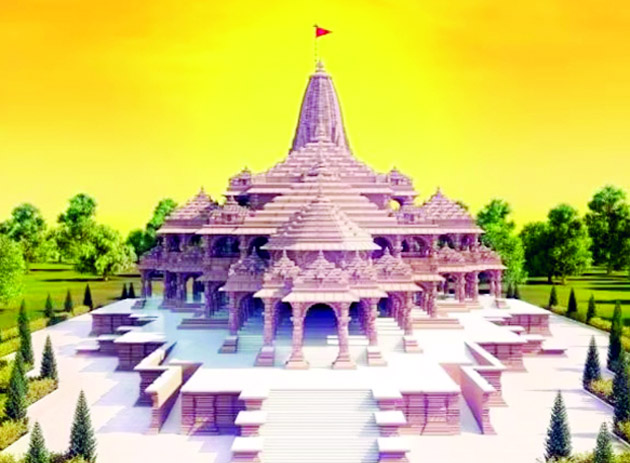Dr Vishal Gupta
India, a land steeped in ancient traditions and spiritual wisdom, finds its cultural nucleus in the timeless epic, the Ramayana. At the heart of this revered narrative stands Lord Rama, an embodiment of virtue, righteousness, and the very essence of dharma. In this extensive exploration, we delve into the multifaceted facets of Lord Rama’s persona, tracing his impact on Indian culture, spirituality, and societal ethos. To comprehend the profound influence of Lord Rama on Indian culture, one must navigate through the historical and mythological landscape that frames his existence. The Ramayana, attributed to the sage Valmiki, provides a detailed account of Rama’s life, from his birth in Ayodhya to his triumphant return after defeating the demon king Ravana. This epic, interwoven with moral dilemmas, familial bonds, and divine interventions, serves as a foundational scripture for millions of Hindus.
Central to Lord Rama’s characterization is his unwavering commitment to dharma. The concept of dharma, encapsulating righteousness and duty, finds its highest expression in Rama’s life. His adherence to duty, even at the cost of personal sacrifice, sets an indelible example for generations to come. The ‘Maryada Purushottam’ (the perfect man) is often celebrated for balancing his roles as a son, husband, and king with impeccable integrity. Lord Rama’s reign in Ayodhya is heralded as an epitome of ideal governance. The principles of justice, equality, and compassion underpinned his rule, establishing a kingdom often referred to as ‘Ram Rajya.’ Leaders across epochs have sought inspiration from Rama’s leadership style, attempting to emulate the just and benevolent ruler described in the Ramayana. The imprint of Lord Rama on Indian culture is vividly evident in the plethora of festivals, traditions, and celebrations dedicated to him.
Diwali, the festival of lights, commemorates Rama’s return to Ayodhya after vanquishing Ravana. The retelling of the Ramayana through various art forms, from classical dance-dramas to folk traditions, ensures that Rama’s narrative remains eternally woven into the cultural tapestry of India. Beyond the temporal realm, Lord Rama holds profound spiritual significance. Devotees perceive him not merely as a historical figure but as an embodiment of the divine. The chanting of the ‘Rama Nama’ (the name of Rama) is considered a potent spiritual practice, believed to invoke his divine presence and purify the soul. Numerous temples dedicated to Rama dot the landscape of India, serving as spiritual sanctuaries for millions. Lord Rama’s life and teachings have profound philosophical implications, contributing to the rich tapestry of Indian philosophy. The Ramayana serves as a source of moral, ethical, and philosophical reflections, with discussions on dharma, karma, and the nature of existence intricately woven into the narrative. Philosophers and scholars have engaged in extensive dialogues, interpreting Rama’s journey as a metaphor for the human quest for truth and purpose. The influence of Lord Rama extends beyond religious and philosophical realms into literature and the arts. From Valmiki’s epic to Tulsidas’ Ramcharitmanas, Rama’s story has been retold in myriad languages and styles. The timeless appeal of Rama’s character has inspired poets, writers, and artists across generations, creating an enduring legacy in literature, performing arts, and visual representations.
Despite the reverence accorded to Lord Rama, his story has not been devoid of controversies and debates. Interpretations of certain episodes in the Ramayana, such as Sita’s exile and the Agni Pariksha (trial by fire), have sparked discussions on gender, morality, and societal norms. Contemporary scholars engage in critical analyses, seeking to reconcile the ancient narrative with modern perspectives.
The influence of Lord Rama transcends geographical boundaries, resonating with people across the globe. The universal themes of love, duty, and the triumph of good over evil embedded in the Ramayana strike a chord with individuals of diverse cultural backgrounds. Scholars and enthusiasts worldwide study and appreciate the enduring wisdom encapsulated in Rama’s journey.
In the vast expanse of Indian culture, Lord Rama stands as a guiding light, illuminating the path of righteousness and virtue. His legacy, etched in the scriptures, festivals, traditions, and artistic expressions, continues to shape the ethos of a nation deeply rooted in spirituality and morality. As India evolves in the modern era, the timeless odyssey of Lord Rama remains a source of inspiration, offering a beacon of wisdom and values that resonate across time and space.
Trending Now
E-Paper


